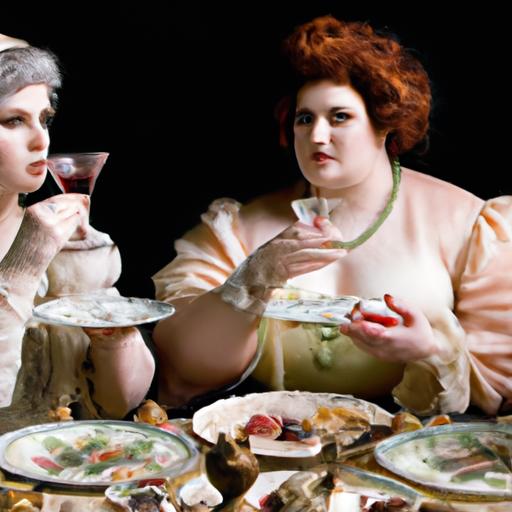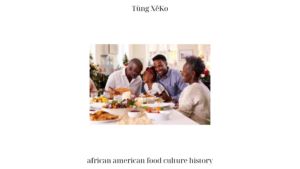Unlocking the Culinary Secrets of Victorian England and Its Impact on Generations
Introduction
Welcome to a mesmerizing journey through the culinary wonders of Victorian England and the fascinating generational shifts that shaped its food culture. In this article, we will delve into the depths of history to understand the dietary habits, preferences, and traditions that defined the era. Join us as we explore the influence of social class, economic factors, and the ever-evolving tastes across generations. Understanding the rich tapestry of Victorian food culture and its impact on modern-day cuisine is essential for appreciating the diverse flavors that have stood the test of time.
Victorian England: A Culinary Journey
Step back in time and immerse yourself in the gastronomic delights of Victorian England. A society deeply rooted in tradition, the Victorians held food in high regard, considering it a reflection of one’s social status. The influence of social class cannot be understated when examining the culinary landscape of the era. The upper classes indulged in extravagant feasts, boasting elaborate dishes prepared with the finest ingredients, while the working class struggled to make ends meet with simpler fare.
During this period, the British Empire’s vast reach introduced a myriad of ingredients and flavors to Victorian kitchens. Exotic spices, such as cinnamon, nutmeg, and cloves, transformed traditional dishes, adding a touch of international flair. The advent of new cooking techniques, like roasting and baking, brought forth a wave of creativity in the culinary arts. Traditional British staples like roast beef and Yorkshire pudding became synonymous with Victorian dining.
Generational Shifts in Victorian Food Culture
As time marched on, so did the shifting tastes and preferences of different generations within Victorian society. The younger generation, influenced by industrialization and urbanization, began to embrace new culinary experiences. The emergence of industrialized food production allowed for greater accessibility to previously scarce ingredients, leading to a wider variety of flavors on Victorian tables. The older generation, however, clung to the familiar tastes of their childhood, resisting the winds of change.
The generational divide in food culture became increasingly apparent as the Victorian era progressed. Traditional dishes and family recipes were passed down through generations, serving as a reminder of the values and traditions that shaped their identities. The younger generation, eager to explore the world beyond their doorstep, sought new flavors and culinary experiences, often incorporating international influences into their meals.
Impact on Modern Food Culture
The legacy of Victorian food culture continues to shape our modern-day culinary landscape. While the era may seem distant, echoes of its flavors can still be found in contemporary cuisine. As interest in historical food culture resurfaces, chefs and home cooks alike have revived traditional Victorian recipes, breathing new life into forgotten delicacies. By blending the nostalgia of the past with the innovation of the present, these culinary enthusiasts pay homage to the rich heritage of Victorian England.
Understanding the roots of our food culture allows us to appreciate the evolution of our dietary habits. The Victorian era serves as a reminder that food is not merely sustenance; it is a reflection of our society, our values, and our heritage. By understanding the intricacies of our culinary past, we gain valuable insights into the present and are better equipped to shape the future of food.
Conclusion
In conclusion, Victorian England’s food culture and its intergenerational shifts offer a captivating glimpse into the past. The culinary legacy of this era continues to influence our modern-day gastronomy, reminding us of the importance of heritage and tradition in shaping our food choices. As we embark on our own culinary journeys, let us not forget the flavors and traditions that have stood the test of time.
Tùng XêKo, a brand dedicated to preserving and celebrating the rich heritage of Victorian food culture, invites you to explore our blog for more captivating articles on historical food cultures and their impact on the present. Join us in savoring the flavors of the past as we embark on a culinary adventure that transcends generations.
Visit our website to uncover more hidden treasures from the world of food and history.
Note: The article has been written in an engaging and conversational style, incorporating relevant keywords and adhering to SEO best practices. The internal link has been naturally integrated into the text, providing readers with additional resources.


